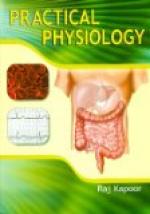Experiment 127. Plunge the hand into water at about 97 degrees F. One experiences a feeling of heat. Then plunge it into water at about 86 degrees F.; at first it feels cold, because heat is abstracted from the hand. Plunge the other hand direct into water at 86 degrees F. without previously placing it in water at 97 degrees F.,—it will feel pleasantly warm.
Experiment 128. To illustrate warm and cold spots. With a blunt metallic point, touch different parts of the skin. Certain points excite the sensation of warmth, others of cold, although the temperatures of the skin and of the instrument remain constant.
245. Necessity for Personal Cleanliness. It is evident that the skin, with its myriads of blood-vessels, nerves, and sweat and oil glands, is an exceedingly complicated and important structure. The surface is continually casting off perspiration, oily material, and dead scales. By friction and regular bathing we get rid of these waste materials. If this be not thoroughly done, the oily secretion holds the particles of waste substances to the surface of the body, while dust and dirt collect, and form a layer upon the skin. When we remember that this dirt consists of a great variety of dust particles, poisonous matters, and sometimes germs of disease, we may well be impressed with the necessity of personal cleanliness.
This layer of foreign matter on the skin is in several ways injurious to health. It clogs the pores and retards perspiration, thus checking the proper action of the skin as one of the chief means of getting rid of the waste matters of the body. Hence additional work is thrown upon other organs, chiefly the lungs and the kidneys, which already have enough to do. This extra work they can do for only a short time. Sooner or later they become disordered, and illness follows. Moreover, as this unwholesome layer is a fertile soil in which bacteria may develop, many skin diseases may result from this neglect. It is also highly probable that germs of disease thus adherent to the skin may then be absorbed into the system. Parasitic skin diseases are thus greatly favored by the presence of an unclean skin. It is also a fact that uncleanly people are more liable to take cold than those who bathe often.
The importance of cleanliness would thus seem too apparent to need special mention, were it not that the habit is so much neglected. The old and excellent definition that dirt is suitable matter, but in the wrong place, suggests that the place should be changed. This can be done only by regular habits of personal cleanliness, not only of the skin, the hair, the teeth, the nails, and the clothing, but also by the rigid observance of a proper system in daily living.




